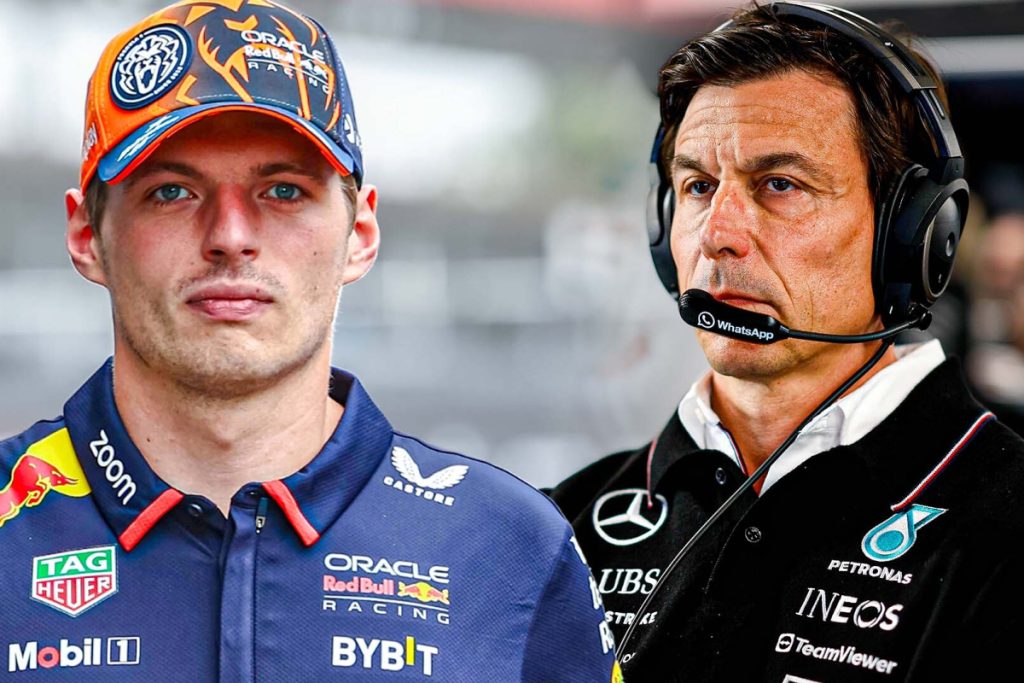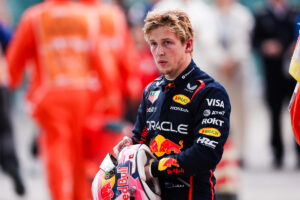JUST IN: Mercedes chief Toto Wolff calls for action after Verstappen FIA…read more

Mercedes chief Toto Wolff calls for action after Verstappen FIA…read more
Mercedes team principal Toto Wolff has called for a more “civilised” approach within Formula 1, in light of the recent controversy surrounding Max Verstappen’s punishment by the FIA. The three-time world champion was sanctioned for swearing during a pre-race press conference at the Singapore Grand Prix, a punishment that sparked debate over the sport’s handling of such incidents.
Verstappen had been critical of the FIA’s crackdown on foul language, voicing his frustration prior to the sanction. As part of his punishment, he was ordered to carry out community service, which prompted a strong response from the Red Bull driver. Verstappen even went so far as to suggest that he might consider stepping away from Formula 1 if the sport continued to impose such restrictions. “I said to them: ‘It was the first time since school that I was called to the headmaster, and I promise you it is going to be the last,’” Verstappen explained, making it clear that he had no intention of letting a similar situation happen again.
Verstappen’s displeasure was evident not only in his comments but also in his actions, as he refused to answer questions during the post-race press conference. The issue with the FIA, however, became the weekend’s main talking point, overshadowing much of the racing action.
Toto Wolff has since weighed in on the matter, agreeing that while there is a need for drivers and teams to moderate their language, the sport should not suppress the emotional outbursts that make Formula 1 so compelling. “We want to have emotions, we want to have raw moments, and we understand that the drivers are in a state of extremes,” said Wolff. He acknowledged that foul language should be curbed in some instances, but noted that banning certain words, like the F-word, might be too extreme. “The F-word is common language now, but it is always the context that makes it,” he added. Wolff suggested that the line should be drawn where language becomes overtly disrespectful, but agreed that some adjustments in tone might benefit the sport.
Wolff’s remarks reflected his understanding of both sides of the debate. He mentioned that drivers and team staff bear responsibility in setting a good example, particularly because Formula 1 is watched by millions of fans globally, including children. “If we can dim it down a little bit, then that is good for all of us,” Wolff said, stressing the importance of maintaining some level of decorum while still preserving the passion and intensity of the competition.
In recounting his own experience with the FIA, Wolff referred to a 2023 incident during the Las Vegas Grand Prix, when both he and Ferrari’s team principal, Fred Vasseur, were called to the stewards for using foul language. He humorously reflected on the experience, saying, “It was quite an enjoyable experience! Fred and I were there at the same time. He was a bit more worried.” While Wolff’s recollection added a light-hearted dimension to the debate, it also underscored how common the use of strong language can be in the heat of competition.
Wolff advocated for a more measured approach to language use, not only by the drivers but also by team principals. He noted that adapting their language to be more “civilised” could enhance the sport’s professionalism without taking away the emotional elements that fans and participants cherish. “If we need to adapt, all of us will adapt our language, including team principals. Then we will look at it more. It is more civilised like this,” Wolff concluded.
Verstappen’s punishment sparked a mixed reaction across the paddock, with many of his rivals, including seven-time champion Lewis Hamilton, backing the Dutch driver’s stance. Despite the controversy, Verstappen managed to secure his first podium finish since the Dutch Grand Prix, even though he lost out on victory to title rival Lando Norris. Crucially, the result did not cause significant damage to Verstappen’s lead in the championship standings.
However, the tension between Verstappen and the FIA remains one of the key storylines of the season. The incident has raised important questions about the balance between maintaining professionalism and allowing drivers to express the emotions that naturally arise in high-pressure racing situations. For now, the debate seems far from over, as teams, drivers, and the FIA work towards finding common ground on how to regulate language without diluting the essence of Formula 1.







